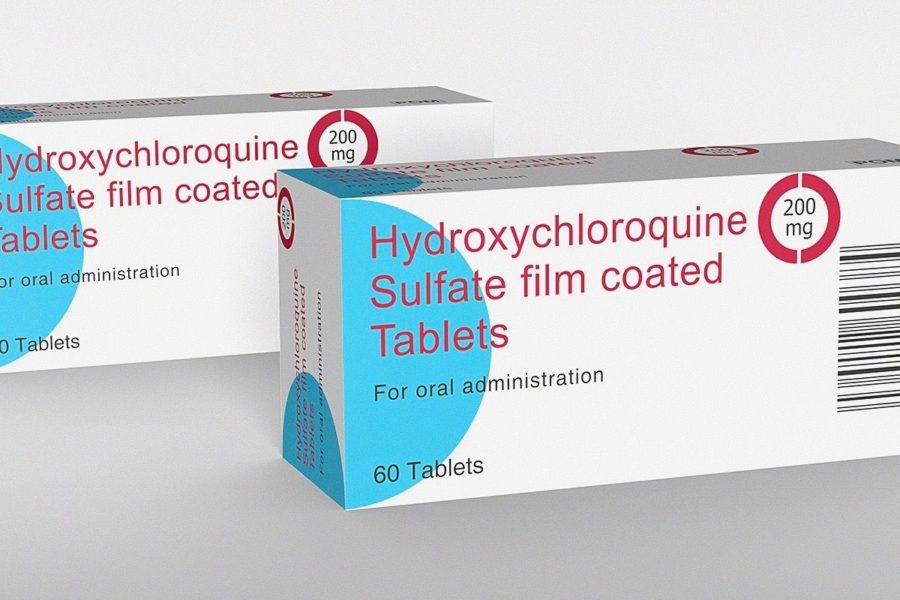Lost in the clamor of the main stream media’s efforts to spread panic about the increase in COVID-19 cases was the good news about the lack of a proportional corresponding increase in so-called “COVID-19-related” deaths. There are many reasons for this including the fact that, as reported on this blog, physicians have developed highly-effective treatment protocols. Nevertheless, federal and state officials have acted to discourage and impede the outpatient use of hydroxychloroquine (HCQ), one of the most effective and least expensive drugs, to treat and prevent COVID-19.
That governmental obstruction is the subject of my latest article which was published yesterday by my friends at The American Spectator.
Here’s the article.
The Politics of Life and Death | The American Spectator
Since 1943 the American Association of Physicians & Surgeons (AAPS) has represented healthcare providers throughout the United States. Its motto is “omnia pro aegroto” (“everything for the patient”).
On June 2, 2020, the AAPS filed a complaint in federal court seeking declaratory and injunctive relief to compel the Food & Drug Administration (FDA), the Biomedical Advanced Research & Development Authority (BARDA), and the Department of Health & Human Services (HHS) to release from the Strategic National Stockpile (SNS) approximately 150 million doses of hydroxychloroquine (HCQ) for use by prescribing physicians. The AAPS challenged the FDA’s Emergency Use Authorization (EUA) that, in the context of the COVID-19 pandemic, restricted the use of HCQ to clinical trials and the treatment of hospitalized patients.
When the AAPS filed its complaint, it issued the following statement:
Today, June 2, 2020, the Association of American Physicians & Surgeons (AAPS) filed a lawsuit, AAPS v. FDA, against the Food and Drug Administration to end its arbitrary interference with the use of hydroxychloroquine (HCQ), which President Trump and other world leaders have taken as a prophylaxis against COVID-19.
Two million doses of HCQ are being sent by the Trump Administration to Brazil to help medical workers there safeguard themselves against the spread of the virus. But at the same time the FDA continues to block Americans’ access to this medication.
HCQ has been approved as safe by the FDA for 65 years, and the CDC states on its website that “CDC has no limits on the use of hydroxychloroquine for the prevention of malaria.”
More than 150 million doses have been donated to the strategic national stockpile controlled by the federal government, but unjustified FDA restrictions limit its use to only hospitalized patients for whom a clinical study is unavailable. Hospitals are even returning HCQ to the stockpile because they are not able to use it effectively.
“It is shocking that medical workers in Brazil will have access to HCQ as a prophylaxis while Americans are blocked by the FDA from accessing the same medication for the same use,” observes AAPS Executive Director Jane Orient, M.D.
“There is no legal or factual basis for the FDA to limit use of HCQ,” states AAPS General Counsel Andrew Schlafly. “The FDA’s restrictions on HCQ for Americans are completely indefensible in court.”
Many foreign nations, including China, India, South Korea, Costa Rica, United Arab Emirates, and Turkey, use HCQ for early treatment and prevention of COVID-19, AAPS points out.
“Entrenched, politically biased officials at the FDA should not be allowed to interfere with Americans’ right to access medication donated to the federal government for public use,” Schlafly says. “By preventing Americans’ use of HCQ as a prophylaxis, the FDA is infringing on First Amendment rights to attend religious services or participate in political events such as political conventions, town halls, and rallies in an important election year.”
“FDA Commissioner Stephen Hahn states that the FDA does not interfere with physicians’ ability to prescribe HCQ, and yet at the same time the FDA denies access by millions of Americans to 150 million doses of it in the national stockpile,” Schlafly adds. “This irrational hoarding by government is an abuse of power.”
A week after the AAPS filed its complaint, the FDA withdrew its EUA concluding that “it is no longer reasonable to believe that CQ [chloroquine] and HCQ may be effective in treating COVID-19, nor is it reasonable to believe that the known and potential benefits of these products outweigh their known and potential risks.”
With that non-withdrawal withdrawal, the FDA kept in place the embargo on the SNS’ supply of HCQ and physicians wishing to prescribe the drug on an outpatient basis continue to face opposition from various Democrat governors and state medical and pharmaceutical boards who are emulating the FDA’s position concerning the efficacy and safety of HCQ. Consequently, the litigation continues.
The AAPS complaint is a remarkable document. It spells out in detail how elements of the federal bureaucracy have played politics to deprive the American people of the safe and beneficial use of HCQ to prevent and treat COVID-19. It does so in a series of damning factual averments which the AAPS appears to be prepared to prove in court.
In its complaint, the AAPS cites the successful use of HCQ by China, India, South Korea, Costa Rica, United Arab Emirates, and Turkey for their “effective early treatment of COVID-19, and for [their] use as a prophylaxis for the disease.”
For example, it cites a recent study in India, where HCQ is being widely used as a prophylaxis, which concluded that “The pivotal finding of our [India’s] study was the noteworthy benefits of HCQ prophylaxis.… [T]he National Task Force for COVID-19 in India recommended once a week maintenance dose.”
In regard to the purported danger posed by the use of HCQ, the complaint avers that “There are no peer-reviewed or meritorious studies showing a lack of HCQ safety for COVID-19 patients. The retrospective studies cited in the media to the contrary are too flawed to inform rational decision making because they compare outcomes without involving like patient populations (e.g., the HCQ patients may have been more sick than the non-HCQ patients or may have come from geographic areas with more acute exposures, which would explain higher rates of negative outcomes without showing in any way that HCQ caused or contributed to those outcomes).”
The complaint cites a recent report by National Public Radio which quoted Dr. Jon Giles, an epidemiologist and rheumatologist at Columbia University Department of Medicine, about the safety of HCQ:
“It’s a very, very safe drug; it’s been used for over 75 years. When I give someone hydroxychloroquine, I don’t get an ECG [electrocardiogram] or do blood monitoring.”
In addition, the AAPS complaint refers to “More than 25 articles since 1982 published in peer-reviewed medical journals have reported on the safety of HCQ, and these articles are included in the PubMed database as maintained by the United States National Library of Medicine at the National Institutes of Health.”
As for the effectiveness of HCQ in treating and preventing COVID-19, the complaint avers that, as of the third week in May 2020, there was a “dramatic difference in saving lives in countries allowing early and prophylactic use of hydroxychloroquine compared with the United States” and illustrates that point with this table:


The complaint references an article (“Early Outpatient Treatment of Symptomatic, High-Risk Covid-19 Patients That Should Be Ramped-Up Immediately as Key to the Pandemic Crisis”) in the peer-reviewed American Journal of Epidemiology by Harvey A. Risch, Professor of Epidemiology in the Department of Epidemiology and Public Health at the Yale School of Public Health and Yale School of Medicine, which states, in part, the following:
An outpatient treatment that prevents hospitalization is desperately needed [for COVID-19]. … Hydroxychloroquine+azithromycin has been widely misrepresented in both clinical reports and public media …. Evidence about use of hydroxychloroquine alone, or of hydroxychloroquine+azithromycin in inpatients, is irrelevant concerning efficacy of the pair in early high-risk outpatient disease. Five studies, including two controlled clinical trials, have demonstrated significant major outpatient treatment efficacy.
Hydroxychloroquine+azithromycin has been used as standard-of-care in more than 300,000 older adults with multicomorbidities, with estimated proportion diagnosed with cardiac arrhythmias attributable to the medications 47/100,000 users, of which estimated mortality is <20%, 9/100,000 users, compared to the 10,000 Americans now dying each week. These medications need to be widely available and promoted immediately for physicians.
The AAPS also cites a May 29, 2020 BBC News report (“Coronavirus: How Turkey took control of Covid-19 emergency”) which quotes Turkey’s “Chief doctor Nurettin Yiyit” asserting that it is critical to use HCQ early in the disease process. “Other countries are using this drug too late,” he says, “especially the United States. We only use it at the beginning. We have no hesitation about this drug. We believe it’s effective because we get the results.”
Similarly, the complaint cites the announcement by Nayib Bukele, President of El Salvador, that he and “most of the world’s leaders” are taking HCQ as a prophylaxis against COVID-19. “I use it as a prophylaxis. President Trump uses it as a prophylaxis. Most of the world’s leaders use it as a prophylaxis.”
The complaint also includes a May 31, 2020 joint statement by the United States and Brazil regarding health cooperation which provides in part the following:
The American and Brazilian people stand in solidarity in the fight against the coronavirus. Today, as a demonstration of that solidarity, we are announcing the United States Government has delivered two million doses of hydroxychloroquine (HCQ) to the people of Brazil. …
HCQ will be used as a prophylactic to help defend Brazil’s nurses, doctors, and healthcare professionals against the virus. It will also be used as a therapeutic to treat Brazilians who become infected.
So why did the FDA restrict the use of HCQ to hospitalized patients and those participating in clinical trials, and why does it continue to embargo the 150 million doses in the SNS? The AAPS’s complaint alleges that “through a biased, unlawful process,” FDA officials from “prior administrations” and “contrary to the wishes of President Donald Trump” arbitrarily limited the use of HCQ from the SNS. The complaint specifically references, among others, Rick Bright, the Director of the Biomedical Advanced Research & Development Authority (BARDA).
According to the complaint, Bright is “a Barack Obama-appointed official who is outspokenly critical of President Trump” and has “personally opposed making HCQ widely available to the public from the federal SNS, and distorted the agency process to arbitrarily and unjustifiably limit access by patients to HCQ received as donations by the federal government for the purpose of making it available promptly to the public.”
Instead, in a reference to the experimental drug remdesivir, the complaint states that “Bright favors an expensive, proprietary antiviral medication developed by Gilead Sciences” based on a “pre-conceived opinion in favor of Gilead which should have caused his recusal from the decision-making process about HCQ.”
Based on a whistleblower complaint by Bright against the Trump Administration, the AAPS avers that Janet Woodcock, the Director of the FDA’s Center for Drug Evaluation and Research, “also played a pivotal role in pushing for the EUA.” The AAPS complaint alleges that “Woodcock also occupied a top position in a public-private operation designed to approve new vaccines for COVID-19, and she reportedly communicated with a Wall Street analyst concerning such development.”
According to the AAPS complaint, although “[p]rophylactic use of HCQ is a rival approach to vaccination … Woodcock did not recuse herself from the decision-making at the FDA concerning restrictions on access to HCQ” and “Bright and agency officials working with him have been biased by their opposition to President Trump and/or their support of rival treatments other than HCQ, such as remdesivir as advocated by Bright and vaccination as sought by Woodcock.”
Now it must be noted that the foregoing are allegations by the AAPS which it will have to support by competent evidence if the litigation advances. But, if the case is allowed to proceed to the discovery phase, the AAPS will be in the position to gather evidence to substantiate its allegations. In short, the AAPS will be able to depose under oath Rick Bright, Janet Woodcock, and the other government officials who, according to the complaint, have played politics with the health, welfare, safety, and lives of the American people by wrongfully impeding the use by physicians of HCQ to prevent and treat COVID-19.
Since the AAPS filed suit, the Henry Ford Health System (HFHS) released a patient study in the International Journal of Infectious Diseases showing that the death rate of its hospitalized patients who received either HCQ alone or HCQ with Azithromycin was less than half that of those who did not, and that the HCQ caused no serious related heart problems.
On July 7, 2020, the AAPS issued a statement about the HFHS findings which provided, in part, the following:
HCQ impressively improved survival. In contrast, the government-favored drug remdesivir has only been shown to decrease survivors’ hospital stay by four days, with no demonstrable improvement in survival…
Based on flawed studies and pronouncements from government officials, doctors have hesitated to use HCQ because of claimed lack of proof of efficacy, or purported danger of cardiac arrhythmias. Two studies, in Lancet and NEJM [New England Journal of Medicine], were retracted because of questionable data. A study from Brazil, published in JAMA [Journal of the American Medical Association], is under investigation because researchers were giving patients lethal doses of chloroquine.
Researchers have been using HCQ too late, when patients may already have COVID-caused heart damage, and overdosing patients…
If HCQ saves half the patients who would have died in hospital, then withholding HCQ is causing tens of thousands of preventable deaths…
The federal government has agreed to buy 500,000 doses of remdesivir at more than $3,000 per course of treatment, without proof that it will save lives. Why won’t it release HCQ, which costs about $20 per course of treatment, from the Strategic National Stockpile, and stop prohibiting or discouraging its use?”
Patients are dying needlessly every day.
George Parry is a former federal and state prosecutor. He blogs at knowledgeisgood.net and may be reached by email at kignet1@gmail.com.




Leave a Reply
Leave a reply.